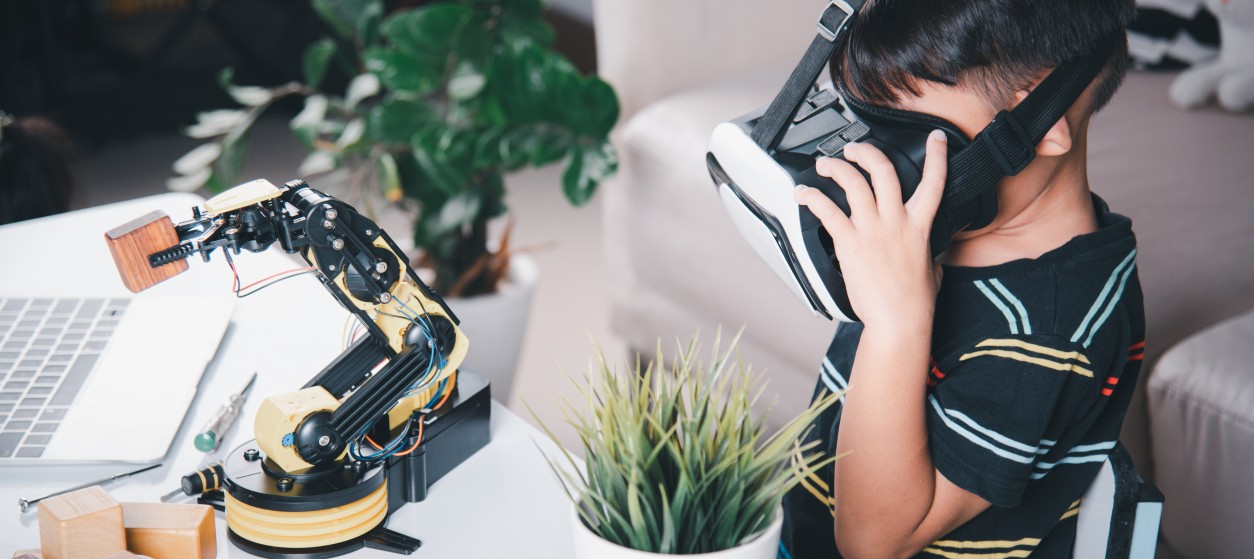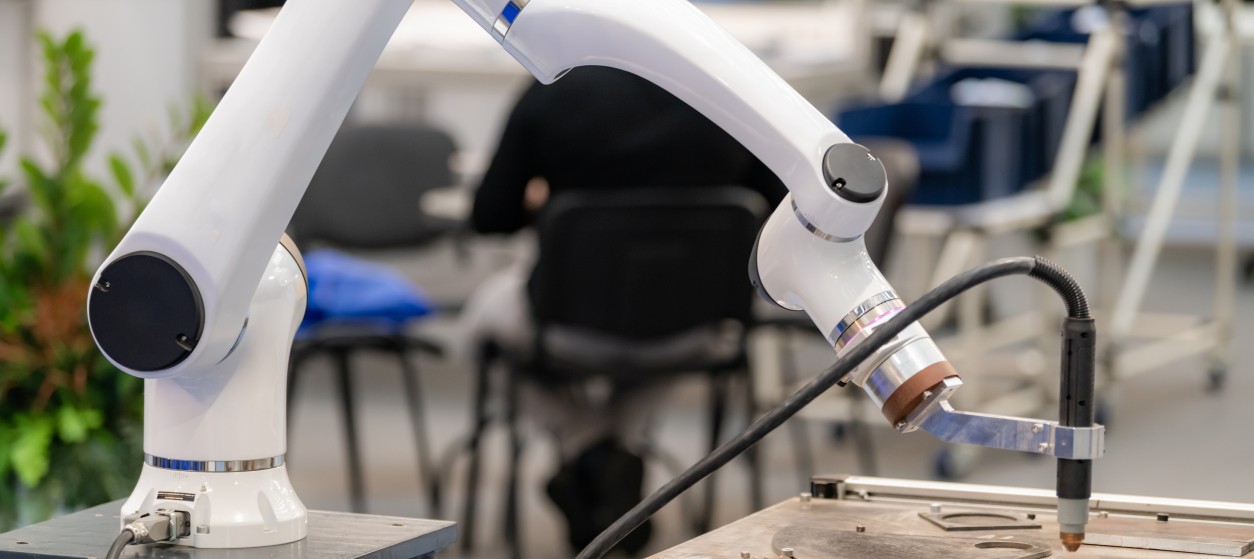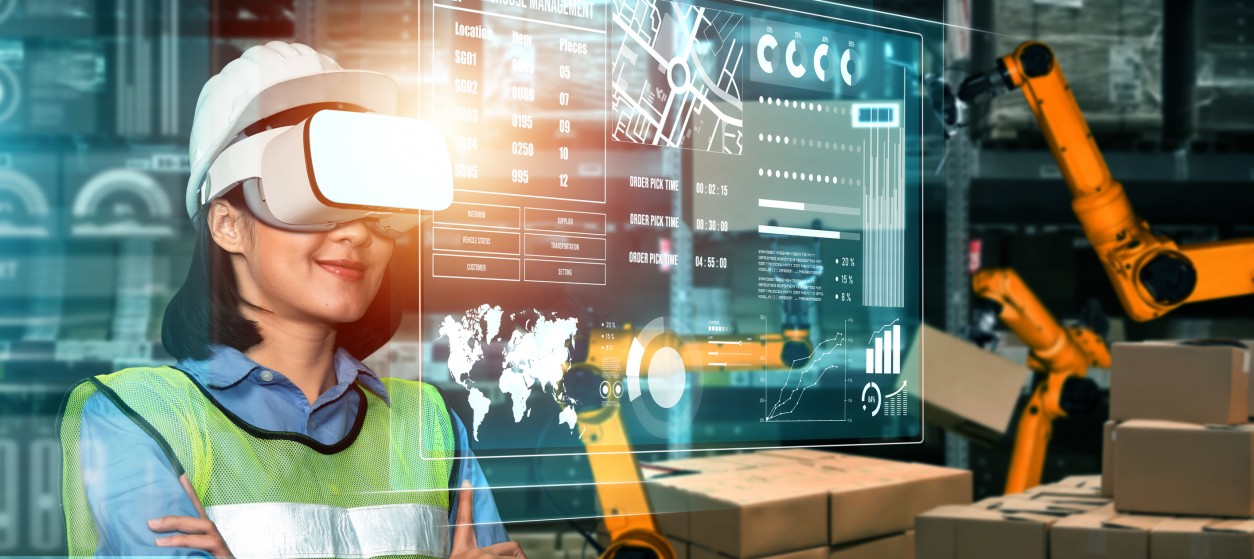In late 2021, Facebook CEO Mark Zuckerberg changed the world’s technological landscape. He introduced what he called “the metaverse” and declared Facebook’s commitment to invest heavily in metaverse infrastructures and applications. The metaverse is a digital environment that allows users to interact and communicate using 3D cyber-representations of themselves and of real-world objects. It is essentially a self-contained reality made possible via technology such as Virtual Reality (VR) headsets coupled with various perceptive systems (e.g., haptic feedback devices). The Metaverse 3D Virtual Reality (VR) environments will be built on computer networks to enable the linking of information and people in a new version of the internet. Hence, this futuristic technology will comprise a wide range of immersive 3D environments that will exist in cyberspace.
The concept of 3D interaction between humans and virtual worlds has been floating around for quite a while now and many thought it would never see the light of day. It has recently gained traction due to the rise and advancement of digital technologies like cloud computing, ultra-low latency networking (e.g., based on 5G) and blockchain technology. These technologies make the metaverse concept possible and create a comprehensive metaverse meaning. For instance, 5G communications enable low-latency remote interactions between humans and objects in ways that break time and space boundaries, making it almost impossible for humans to perceive distance.
From a business perspective, one of the main goals of the metaverse is to improve communication between people and businesses. Specifically, the metaverse will allow users to create their own avatars and explore different locations while interacting with other users around them. The ability to create an avatar will enable people to feel more immersed in their experience as if they were actually there, instead of just watching from their computer screen like a movie or television (TV) show. It also opens new opportunities for businesses because companies can now reach out directly to customers through their avatars instead of relying on traditional marketing methods such as print advertisements or TV commercials. The possibilities are endless when it comes to what can be done with this technology beyond common metaverse examples. For example, imagine being able to collaboratively complete physical tasks with someone who lives across the country without having to physically meet with them face-to-face.
Enterprise Applications of the Metaverse
There is no doubt that metaverse applications can have a disruptive impact on various economic sectors. Some of the most prominent examples include:
- Gaming Industry: During the last decade, gaming has already been disrupted by VR gaming platforms like Oculus Rift and HTC Vive. The next step involves implementing metaverse-like concepts like Mixed Reality (MR) games that allow players to mix real-life objects into the gameplay experience. For example, you could play a game where you are defending your home from zombies, so when you look out your window, you see zombies attacking your house! Mixed reality games will also allow for more complex play experiences, such as being able to interact with other players inside the game world. Moreover, the metaverse will soon change the user experience in the gaming industry. Gamers will be able to interact with each other through virtual worlds rather than via text messages or voice calls as they do now. They will be able to see others’ reactions in real time and form virtual teams based on common interests or goals. This means that users can take part in virtual self-organized multi-player games, where they will be able to interact with thousands of other players at once rather than just one at a time as they do now.
- Asset Management in Industrial Sectors: The metaverse will change how physical assets (e.g., industrial machinery) are maintained by breaking time and space boundaries and helping technicians maintain assets. For instance, it will enable technicians to maintain assets remotely or collaborate virtually across multiple sites in real-time. This could save companies like OEMs (Original Equipment Manufacturers) millions of dollars in travel costs every year by allowing them to maintain and repair their products remotely. These benefits of the metaverse will apply to many different industrial sectors that use and maintain assets, including the manufacturing, oil & gas, energy, and mining industries.
- Retail: Metaverse applications in retail will allow companies to offer virtual shopping experiences. As part of these experiences, customers will try products before they buy them using virtual reality headsets or mobile devices like smartphones. Specifically, the metaverse will allow consumers to shop at home using their avatars or even holograms of themselves if they are not present physically in the store (e.g., shopping for clothes online during work hours). Part of this is already happening today with companies like IKEA that allow customers to see how new furniture will fit in their homes using Augmented Reality (AR). In the future, the metaverse will significantly improve the retail customer experience.
- Travel and Tourism: The metaverse will improve the traveling experience by creating VR and MR experiences that make travelers feel like they are actually there. Imagine being able to visit any destination in the world before you get there and see what it looks like firsthand. Likewise, imagine walking down the street in an unfamiliar city and seeing a restaurant you’ve been wanting to try pop up on your Metaverse device. You can walk inside and order food while chatting with the chef or manager through holographic avatars. The experience could be so immersive that you could smell the food as well as taste it!
In addition to being able to interact with businesses, people could also use their Metaverse devices to interact with each other. For example, if you’re holidaying with friends, this would allow you to catch up with them in a realistic way beyond conventional Zoom and Facetime calls.
Overall, using a metaverse platform, companies can create new ways of interacting with their customers and employees while also creating new revenue streams through advertising opportunities and e-commerce stores. By giving people access to all sorts of information about businesses and objects around them from their devices, there will be more opportunities for them to make decisions based on this information, ultimately leading to greater consumer confidence.
It is hard to predict with certainty what the metaverse will look like in the future. It is certain, however, that the pressure on businesses to invest on the metaverse concept will increase as the metaverse technologies become more widespread. The enterprise that will decide to implement a metaverse solution and adapt its business processes will be at an advantage in the future. This is the reason why you should consider how metaverse could impact your company. If it is likely to have a positive effect on your business, it might be worth pursuing a relevant business opportunity and creating a business case for your decision-makers. In addition to investing in the new technology and training employees to use it, you should be prepared for what the industry calls the ‘trough of disillusionment’. This stage is characterized by dropping interest, causing market stagnation and even some failures. The journey to the metaverse success will look more like a marathon rather than a sprint race.










